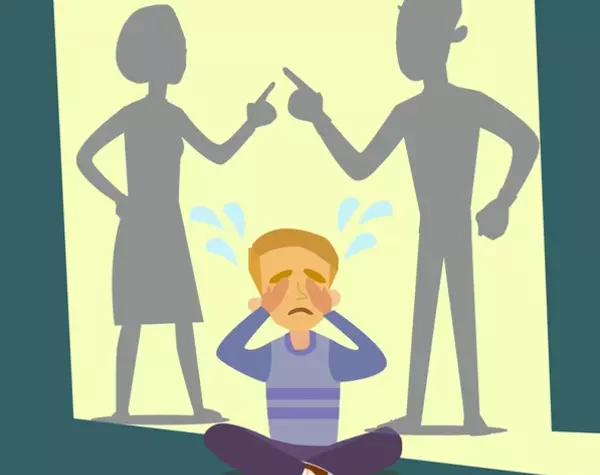When parents have a positive and cooperative relationship with each other, children are more likely to feel secure, loved, and supported. This, in turn, can help children develop better social, emotional, and cognitive skills, and lead to better outcomes in school and in life.
A new study suggests that how mothers and fathers perceive each other as co-parents of their children influence how well-adjusted their children become. Researchers discovered that children have the best outcomes when both parents view their co-parenting relationship as highly positive in a sample of low-income couples, and the worst outcomes when both parents view their relationship as poor.
Child outcomes differed when couples rated their co-parenting relationship as moderately good, but mothers and fathers had different perspectives on each other as co-parents, according to Sarah Schoppe-Sullivan, lead author of the study, professor of psychology at The Ohio State University, and president of the Council on Contemporary Families.
High-quality co-parents provide emotional support to one another and support one another’s parenting decisions. The best outcome for children was when both parents saw their co-parenting relationship as positive.
Schoppe-Sullivan
“The best outcome for children was when both parents saw their co-parenting relationship as positive. But children were almost as well-adjusted when the relationship quality was moderate and mothers were less positive about co-parenting relative to fathers,” Schoppe-Sullivan said.
The study found that when fathers were less positive about co-parenting, child outcomes suffered. The study was recently published online in the journal Child Development.
Previous research has found that parents with better co-parenting relationships are more effective because their children and parents are more well-adjusted – for example, they have fewer behavior problems and better social relationships with others. However, the majority of previous research has been conducted in middle-class white families and has solely relied on mothers’ perspectives on the co-parenting relationship.

This new study included 2,915 low-income couples from seven different states who took part in the Supporting Healthy Marriages program. Every couple had a child under the age of five. Participants were asked about their co-parenting relationship with their partner, or how they interacted as parents.
“High-quality co-parents provide emotional support to one another and support one another’s parenting decisions,” Schoppe-Sullivan explained. Couples were asked to report on their child’s social competence and behavioral adjustment eighteen months after reporting on their co-parenting relationship.
The researchers identified four co-parenting groups based on reports from mothers and fathers about their co-parenting relationships. The parents who both saw their co-parenting relationship as highly positive made up the largest group (43% of the sample). The next largest group (32%) consisted of parents who both rated their relationship as moderately positive, but mothers were less positive about fathers’ co-parenting.
“Their children were nearly as well-adjusted as children of positive co-parenting parents,” Schoppe-Sullivan said. According to Schoppe-Sullivan, the fact that these two groups made up the majority of the sample was a significant finding.
“Low-income couples often face a variety of challenges that can make parenting more difficult than it is for middle-class couples, so it is encouraging that three-quarters of them had co-parenting relationships that led to good outcomes for their children,” she said.
The next largest group (16%) reported a moderate-quality co-parenting relationship, but fathers were less enthusiastic than mothers. The fourth group (9%) consisted of couples who reported poor co-parenting relationships, with mothers particularly critical of their fathers.
Children in these two groups were less well-adjusted than children in the other groups. One question raised by the study is why children are less well-adjusted when fathers are less positive about their co-parenting relationship than mothers.
According to Schoppe-Sullivan, the study’s data cannot provide a definitive answer. However, the study found that psychologically distressed fathers were more likely than other groups to be in the “fathers less positive” group. Distressed fathers may prompt mothers to push them away from parenting responsibilities, causing fathers to develop additional psychological issues and be less satisfied with their co-parenting role.
“This may result in more conflict between parents, disagreement on parenting decisions, and less positive engagement between fathers and their children,” Schoppe-Sullivan said. “All of this could contribute to their children’s poorer adjustment.”
She believes that when mothers are less positive than fathers, it may indicate that mothers believe fathers are not contributing enough to parenting. Given how common it is for mothers to feel this way, it may not cause as much conflict between the parents as when fathers are less positive, which may explain why the children are relatively well-adjusted.
Overall, the findings suggest that practitioners who work with parents should pay special attention when fathers are less positive about their co-parenting relationship than mothers, she says.





